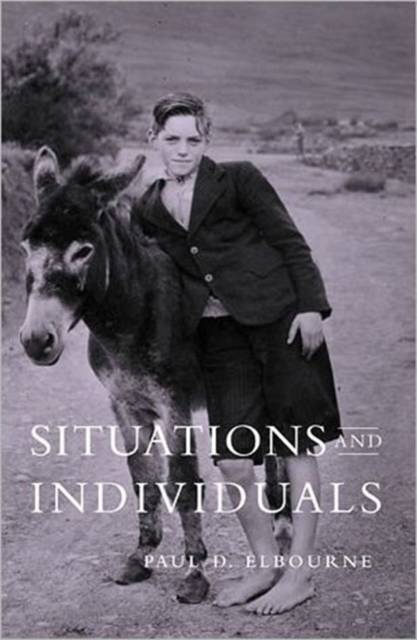
- Afhalen na 1 uur in een winkel met voorraad
- Gratis thuislevering in België vanaf € 30
- Ruim aanbod met 7 miljoen producten
- Afhalen na 1 uur in een winkel met voorraad
- Gratis thuislevering in België vanaf € 30
- Ruim aanbod met 7 miljoen producten
Omschrijving
In Situations and Individuals, Paul Elbourne argues that the natural language expressions that have been taken to refer to individuals--pronouns, proper names, and definite descriptions--have a common syntax and semantics, roughly that of definite descriptions as construed in the tradition of Frege. In the course of his argument, Elbourne shows that proper names have previously undetected donkey anaphoric readings.This is contrary to previous theorizing and, if true, would undermine what philosophers call the direct reference theory (which holds that the sole contribution of a proper name to the truth conditions of a sentence is an individual) as well as the related doctrine that proper names are rigid designators. Elbourne begins by addressing donkey anaphora, relating other concerns about pronouns to the solution of this notorious problem. His subsequent argumentation provides a unified semantics for the donkey anaphoric and bound and referential uses of pronouns and discusses the prospect of unifying the syntax and semantics of pronouns with the syntax and semantics of normal definite descriptions. Elbourne's aim is not only to advance his proposal of a unified syntax and semantics but also to urge linguists and philosophers dealing with pronoun interpretation to consider a wider range of theories than they do at present, and to test the competing claims of description-based theories and dynamic semantics against the data.
Specificaties
Betrokkenen
- Auteur(s):
- Uitgeverij:
Inhoud
- Aantal bladzijden:
- 234
- Taal:
- Engels
- Reeks:
- Reeksnummer:
- nr. 41
Eigenschappen
- Productcode (EAN):
- 9780262550611
- Verschijningsdatum:
- 7/10/2005
- Uitvoering:
- Paperback
- Formaat:
- Trade paperback (VS)
- Afmetingen:
- 164 mm x 226 mm
- Gewicht:
- 340 g

Alleen bij Standaard Boekhandel
Beoordelingen
We publiceren alleen reviews die voldoen aan de voorwaarden voor reviews. Bekijk onze voorwaarden voor reviews.











